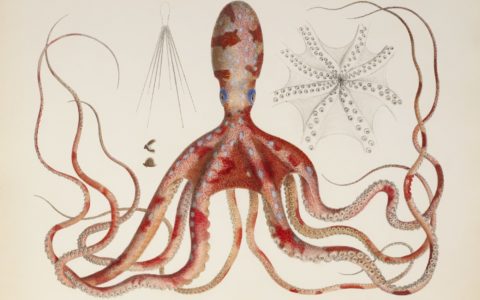Congratulations to our newly-elected Fellows 'honoris causa'
Our Anniversary Meeting in May welcomed several new HonFLS.
Published on 7th June 2021
2021 saw the election of four highly-deserving Fellows honoris causa. In recognition of their dedication to, and achievement in, the advancement of the biological sciences, please join us in heartily congratulating the following on their election to HonFLS:
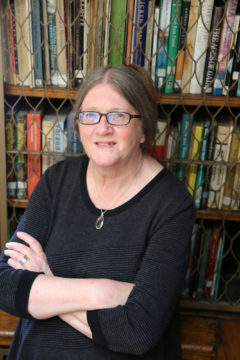
Lynda Brooks
Lynda Brooks joined the Linnean Society in 2004 as Deputy Librarian, taking over from the Librarian, Gina Douglas, in 2007, serving the Society for some 14 years. Lynda, whose patience and helpfulness were boundless, made a tremendous contribution to the development of the library and she left a lasting curatorial legacy. Lynda oversaw the growth of the role of Librarian and the Linnaean collections—especially online. She made the library a friendly and peaceful oasis for research: many researchers benefitted from her deep knowledge of the Collections, before and during visits, and had their studies greatly enhanced by her suggestions of other materials of interest. Lynda always strived to keep an ‘open for business’ policy even during the challenging times of major building works disrupting the library. She was valued for her professionalism and wry sense of humour, and for being such an intrinsic part of the Library. To quote a visiting Australian Fellow: ‘Lynda Brookes was a stalwart and exemplified wonderful calmness, support and practicality.’ Thus, we are delighted to bestow upon Lynda the honour of Fellow honoris causa.
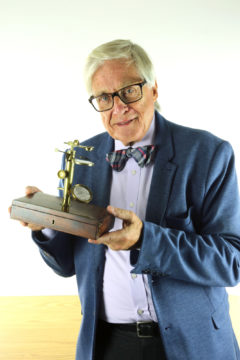
Professor Brian J. Ford
Professor Brian J. Ford has made a significant contribution to microscopy and its popularisation, being known internationally for his thought-provoking lectures, books and broadcasts. Brian began his studies in botany and zoology at Cardiff University in 1959, leaving in his second year to set up his own laboratory. The direction of his adult life was set from the moment he was elected a Fellow of the Royal Microscopical Society in 1962. His early work was in plant physiology, publishing in Nature a theory on plant excretion which gave rise to the new science of phytoremediation. He discovered the original specimens from Antony van Leeuwenhoek, the microscope pioneer, which had lain hidden in the Royal Society’s cellars for three centuries. He is a strong advocate of interdisciplinary research, and has published extensively on microscopy, embracing fields such as food science, microbiology, forensic analysis and blood coagulation. He has been a Fellow of the Linnean Society for over 50 years (elected 1969) and also served on Council for many years, including as Zoological Secretary. Brian is our Honorary Surveyor of Scientific Instruments, which includes Robert Brown's microscope, one of the Society’s more unusual treasures. It is for his committed curatorship of this artefact that we are delighted to confer the honour of Fellow honoris causa on Brian Ford.
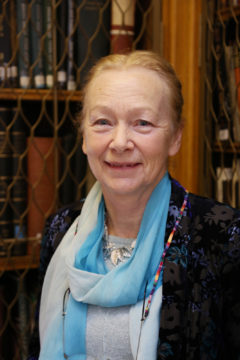
Dr Elizabeth Rollinson
Dr Elizabeth Rollinson joined the Linnean Society in 2011 as Executive Secretary, following a career in biotechnical research on infectious diseases. Her role has encompassed oversight for the Society’s day-to-day operations, facilitating implementation of the Society’s strategic and charitable aims, providing support to the President, Trustees, Secretaries and staff, engaging with and supporting Fellows, and strengthening relationships with the other Courtyard Societies. Elizabeth has served the Society for nine years with enthusiasm and warmth, bringing increased professionalism to statutory processes and governance. Under her leadership the Courtyard Societies have come together much more closely as a ‘Cultural Campus’, building on our shared areas of interest to increase engagement with the public, and Linnean Society representation on a number of umbrella organisations has grown, further increasing the influence of the Society. The Society’s education programme ‘Linnean Learning’ has blossomed, and the Society’s educational outreach has diversified and grown, bringing in much closer engagement with schools. The pandemic has had a profound effect on the Society’s staff and activities, and Elizabeth has worked with the President, Council and staff to ensure that safeguards have been put in place and that the business of the Society has continued. It is a credit to her leadership that staff have been able to continue their work to maintain the collections and support the Fellowship through virtual events and programmes. We have greatly appreciated Elizabeth’s many contributions to the Society, and for this award her the honour of Fellowship honoris causa.
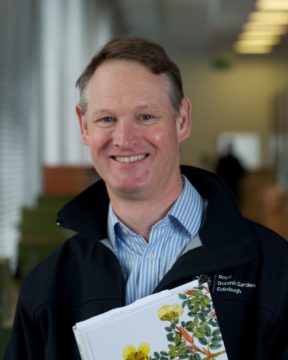
Dr Mark Watson
Dr Mark Watson, a Fellow for 33 years, is Head of the Major Floras Research Programme at the Royal Botanic Garden Edinburgh. His research focus is on floristics and fieldwork in the Sino-Himalayan region, monographic studies on the plant family Apiaceae (Umbelliferae), and biodiversity informatics. This has included authorship for Flora of Bhutan (completed 2002), author and member of the Editorial Board of Flora of China (completed 2013), and author and Editor-in-Chief of Flora of Nepal (ongoing). Major responsibilities include: managerial and leadership roles; project development, funding and delivery; international partnership development; and floristic and botanical history research. Mark has a long association with the Linnean Society, starting with his research on the Linnean collections and library as part of his PhD, and continuing with historical research on early botanical explorations in Nepal. He is an advocate for the Society, giving lectures and introducing Ambassadors and other diplomats to the treasures in the collections. He has served on Council twice, nominally finishing his second term in 2019. However, he took on the role of Interim Treasurer in December 2018 and was elected Treasurer for the year 2019/2020. There is no doubt that Mark completely embraced the role of Treasurer, with extraordinary diligence, ensuring that the Society’s governance was fit for purpose as the Society moves forwards to face what is an increasingly challenging environment. We salute Mark Watson for his tremendous contribution to the Society overall.
